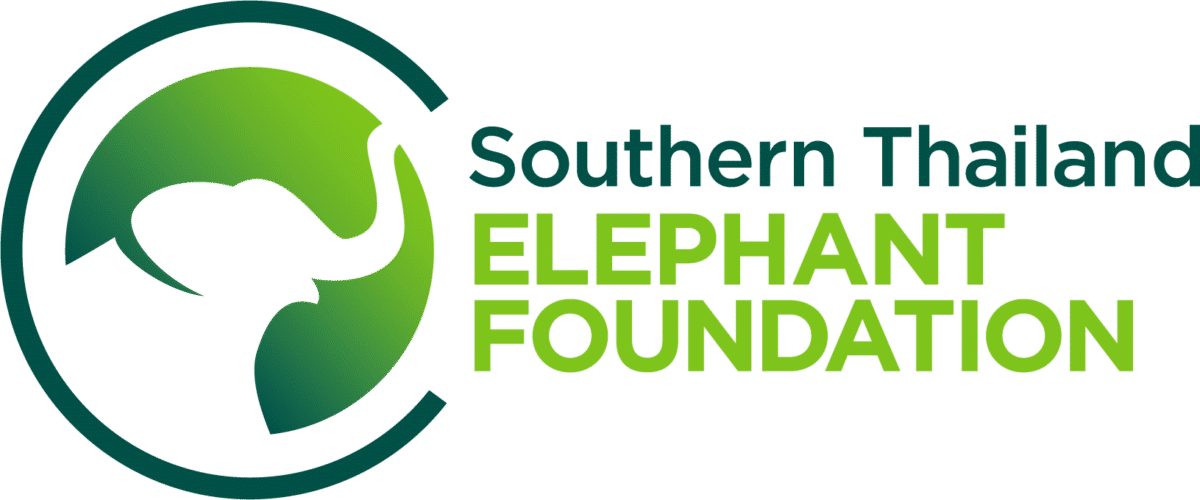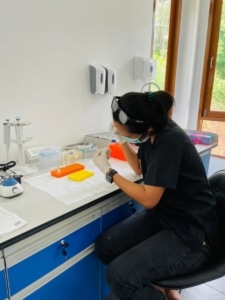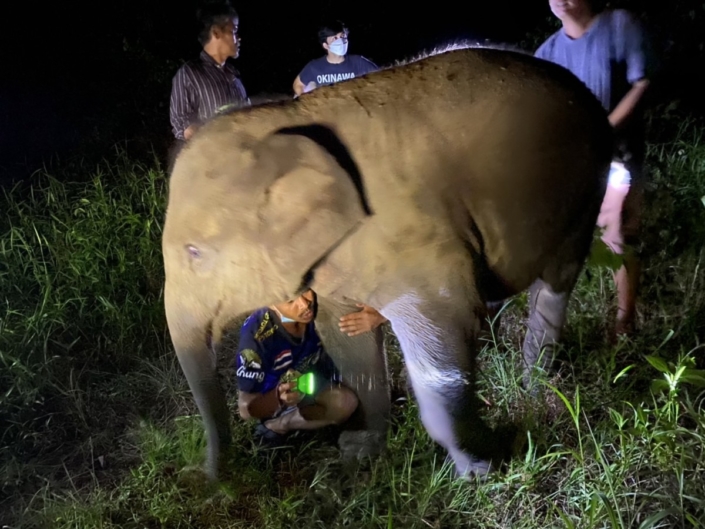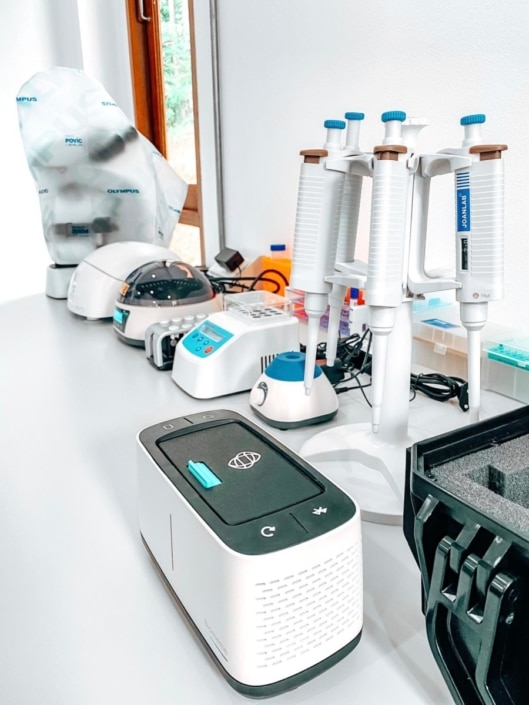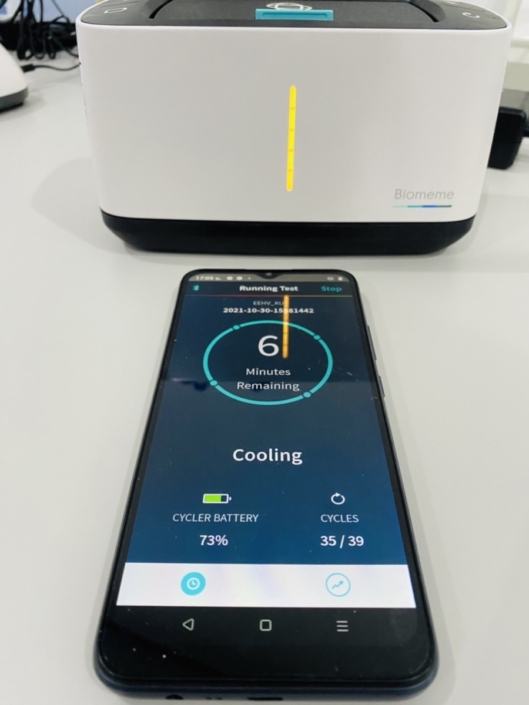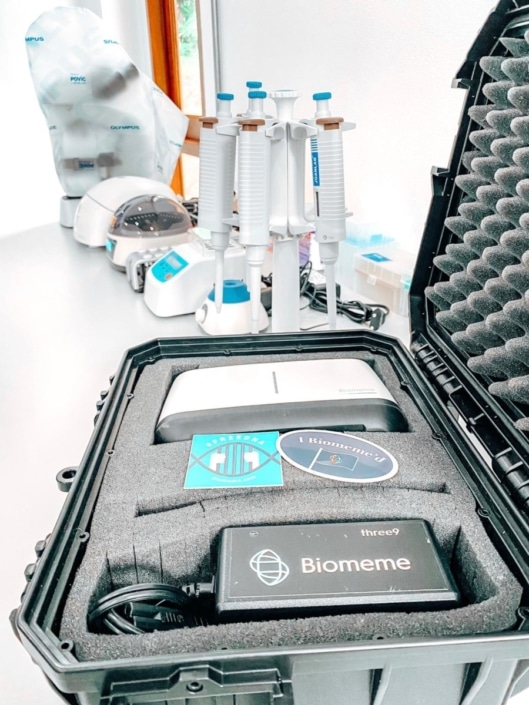First Mobile qPCR Machine in the South of Thailand
Dr Aon analysing blood samples with the new qPCR machine
STEF has now established the first laboratory in the South of Thailand that can determine and quantify the presence of the dangerous and often fatal Elephant Endotheliotropic Herpesvirus (EEHV) in young elephants (see our News story about EEHV), With money raised by our sister charity in Thailand, a mobile quantitative PCR (polymerase chain reaction) has been purchased. This hi-tech piece of kit turns a smartphone into a thermocycler for real-time PCR or isothermal analysis, providing sample-to-result in less than a minute.
This means we can now analyse blood samples with a mobile unit that provides fast results and which has the additional advantage of being able to measure the amount of virus (ie the viral load) rather than just the positive/negative result obtained from a normal PCR. This will enable our vet, Dr Aon, to determine the extent of the virus in a young elephant and to monitor its progress under treatment.
Following the purchase of the qPCR, our Elephant Veterinary Centre a Khok Kloi was visited by Assistant Prof Dr. Supaphen Sripiboon from the Department of Large Animal and Wildlife Clinical Science in the Faculty of Veterinary Medicine at Kasetsart University. Dr Sripiboon helped Dr Aon to set up the new qPCR Biomeme Franklin Thermocycler, and it has already been put to use. A few days ago, Dr Aon received a call from an anxious owner about his 18-month-old elephant, a female called Khor Ya, who appeared depressed and hadn’t eaten any grass for a day, although she was still drinking a little of mother’s milk.
On examination, Khor Ya had no fever, and Dr Aon thought it likely she had either a gastrointestinal tract problem or EEHV. Using the new qPCR machine, she tested Khor Ya’s bloods for EEHV, and the result was, fortunately, negative. The next day Khor Ya was much more energetic and playful, with a better appetite, so Dr Aon gave her anti-flatulent tablets for her gastrointestinal issues and vitamin C to boost her immunity.
Dr Aon continues to monitor young elephants in Southern Thailand for EEHV in the knowledge that a quick diagnosis will increase the chances of survival for any elephant that contracts this deadly virus.
[Click on photos to enlarge and read captions]
